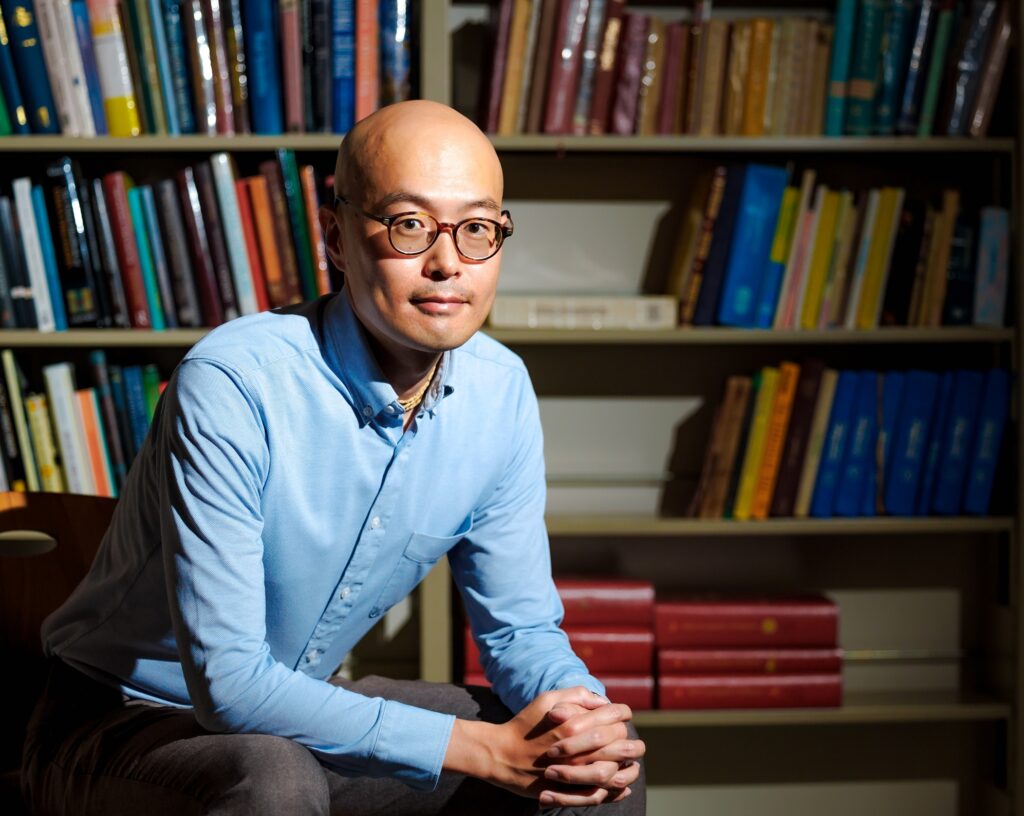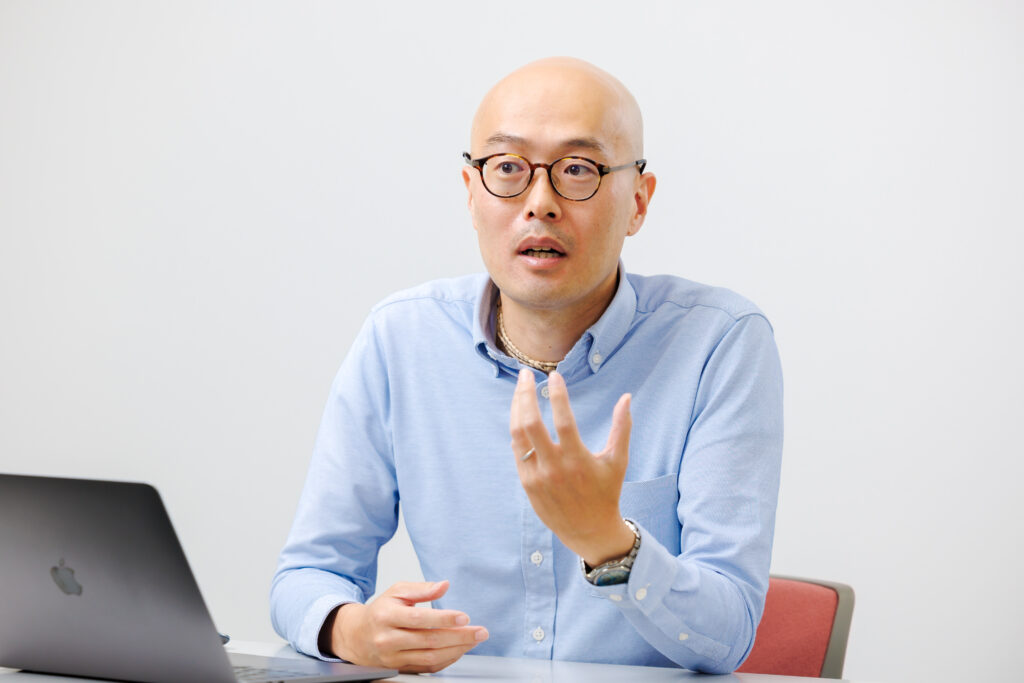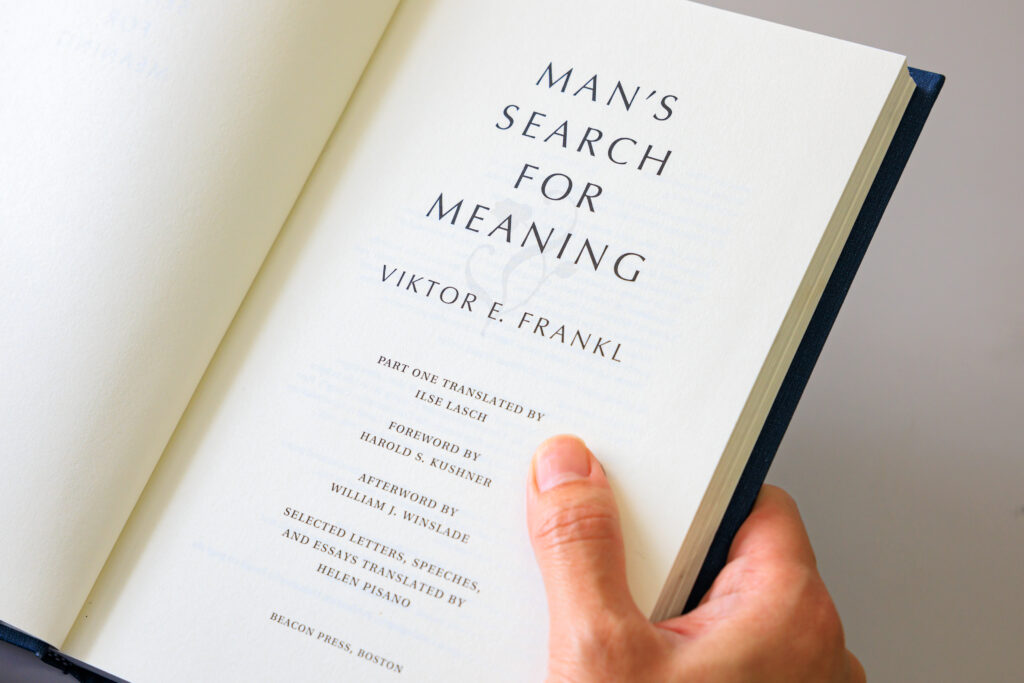
In the Hindu beliefs in South Asia, there is a concept known as bhakti, which may be translated as “devotion” in English. Focusing on this theme, Professor Kiyokazu Okita in the Faculty of Liberal Arts researches human emotions through Sanskrit and Bengali literature. What is unique in Hindu traditions, and what is the significance of understanding human emotions?
“My research focus is on Hindu literature, theology and philosophy, which I primarily explore through premodern South Asian texts. Within the poetry, drama, and other literature of this period, I pay special attention to the texts about devotion to Krishna, one of the most prominent deities within the Hindu pantheon. The two key concepts in my research are devotion to divinity and the aesthetic experience essential to great works of art.
My research on devotion is centered around the Bhāgavata Purāṇa, which is a scripture written in Sanskrit sometime between the 7th and 10th centuries. It is a large text with extremely rich contents. Essentially, what is written in the text is an answer to the question: “What would you do if you knew you had only a week left to live?’”
Krishna Depicted as the Object of Love and Friendship

According to Hindu traditions, there are four goals of life worth pursuing. The first three concern achieving financial success, pursuing sensual pleasures and fulfilling social responsibilities. These life aspirations are mundane in nature. The last one is a core concept also found in other religions originating in South Asia such as Buddhist and Jain traditions; it asserts that “life is suffering,” and that the goal is to liberate ourselves from it. Whatever we acquire throughout life – be it wealth or a romantic relationship – it does not last forever. Eventually, we are separated from them and we suffer as a result. The Bhāgavata explains that to be free from this distress is life’s ultimate goal, and that by cultivating strong devotion to God, one is able to focus their consciousness on Him at the moment of death, which then would result in being released from the suffering of the mortal world.
But how is one supposed to cultivate such a strong devotion to God? What is unique about Hindu traditions is that gods are not seen as distant figures. Rather, they are seen as existing in close proximity to humans. In the poetry and literature that I study, Krishna is depicted as the object of love, friendship, and affection. For example, we can relate to Krishna as our friend, lover or child. In the sacred Hindu text of the Bhāgavata Purāṇa, it is said that we can deepen our devotion to God by redirecting our emotions – love, affection, friendship, and even hatred – towards God instead of human beings.
Interest in theoretically exploring “the science of emotions”
Since ancient times in South Asia, the study of emotions in aesthetics and dramatology has been considered an extremely important aspect of understanding humanity. Another pillar in my academic research is aesthetic experience, which refers to episodes such as when people feel beauty by reading literature or are moved to tears from watching movies. Theoretically examining these moments is deeply fascinating. We may say that this is an exploration into “the science of emotion.”
The oldest source in this area is called Nāṭyaśāstra, which is a treatise on classical Indian drama dating from the 3rd-4th century. The text explains the method and ingredients necessary to stimulate the audience’s consciousness and deliver aesthetic experience. The theory of aesthetic experience found in the Nāṭyaśāstra is used extensively in theater as well as poems on Krishna devotion which I study.
In our modern time, so little value is placed on understanding emotions. While rationality receives a lot of attention, emotions tend to be an afterthought, and I find this to be very unfortunate. Divorced from emotion, it is impossible to comprehend human activity. Emotion is also an extremely complex topic which is explored in various academic disciplines including anthropology, art, biology, history, literature, neuro-science, psychology, philosophy, sociology, and theology. Keeping this in mind, I maintain my interest in anything discussing emotions.
For more than 10 years now, I have been conducting research on devotion to God and aesthetic experience, and my current goal is to complete a monograph on this topic. I hope more people will come to know and appreciate the beauty and depth of South Asian world-views and thought-systems.
The book I recommend
“Man’s Search for Meaning”
by Viktor E. Frankl, Beacon Press

As a psychiatrist who survived a concentration camp during World War II, Viktor Frankl has a lot to teach about the power of hope and having a purpose in life. Reading it makes us keenly aware that we cannot take our care-free everyday lives for granted and need to value every moment.
-
Kiyokazu Okita
- Associate Professor
Department of Liberal Arts
Faculty of Liberal Arts
- Associate Professor
-
Kiyokazu Okita received a BA in Religious Studies from International Christian University, Tokyo, M.St. in the Study of Religion, and D.Phil. in Hindu Theology from University of Oxford, UK. In 2010-2011, he was a lecturer at the University of Florida, and then a JSPS postdoctoral research fellow (2011-2013). Afterward, he became an assistant professor (non-tenure track) at Hakubi Center for Advanced Research, Kyoto University (2013-2017) before joining Sophia University in 2017.
- Department of Liberal Arts
Interviewed: July 2022